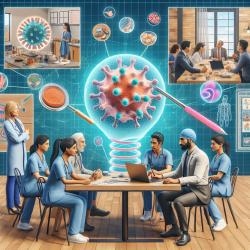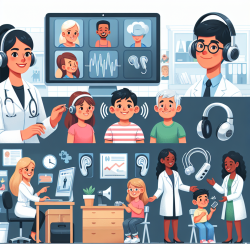In the realm of pediatric oncology, effective communication is not just beneficial—it's essential. The recent study by Dewez et al. (2021) sheds light on a groundbreaking approach designed to enhance communication skills among healthcare professionals working with young cancer patients. This blog explores the key findings of the study and how practitioners can apply these insights to improve their practice.
The Importance of Motivational Communication
Motivational Communication (MC) is a hybrid model that combines elements of Motivational Interviewing (MI) and cognitive-behavioral therapy. It focuses on enhancing a patient's intrinsic motivation to adopt healthier lifestyle habits. This approach is particularly relevant in pediatric oncology, where young patients face significant lifestyle challenges due to their treatments.
The study aimed to develop and refine a training program called "Motivation Cafés," which consists of six sessions focusing on core MC skills. These sessions are designed for healthcare professionals who wish to positively impact the lifestyles of families dealing with pediatric cancer.
Key Findings from the Study
- High Feasibility and Acceptability: The training program showed high levels of adherence and acceptability among participants, suggesting its practical applicability in real-world settings.
- Improvement in Self-Efficacy: Participants reported increased self-efficacy and knowledge in MC after completing the training sessions.
- Structured Intervention Tools: The program provided structured tools tailored to the specific needs of pediatric oncology patients, which participants found beneficial.
- Role-Playing Scenarios: Role-playing based on real-life scenarios helped participants apply theoretical knowledge into practice effectively.
How Practitioners Can Benefit
The Motivation Cafés training program offers several benefits for practitioners:
- Enhanced Communication Skills: By participating in this program, practitioners can develop better communication strategies that foster patient engagement and motivation.
- Improved Patient Outcomes: Effective communication can lead to better adherence to treatment plans and healthier lifestyle choices among young patients.
- Professional Development: The program provides an opportunity for continuous learning and skill enhancement, which is crucial for career growth.
The Path Forward: Encouraging Further Research
The study by Dewez et al. (2021) is a significant step forward in improving communication in pediatric oncology. However, more research is needed to explore the long-term impacts of such training programs on patient outcomes. Practitioners are encouraged to delve deeper into this area and contribute to the growing body of knowledge.
If you're interested in enhancing your communication skills and making a positive impact on your patients' lives, consider exploring the full research study for more detailed insights and methodologies.










